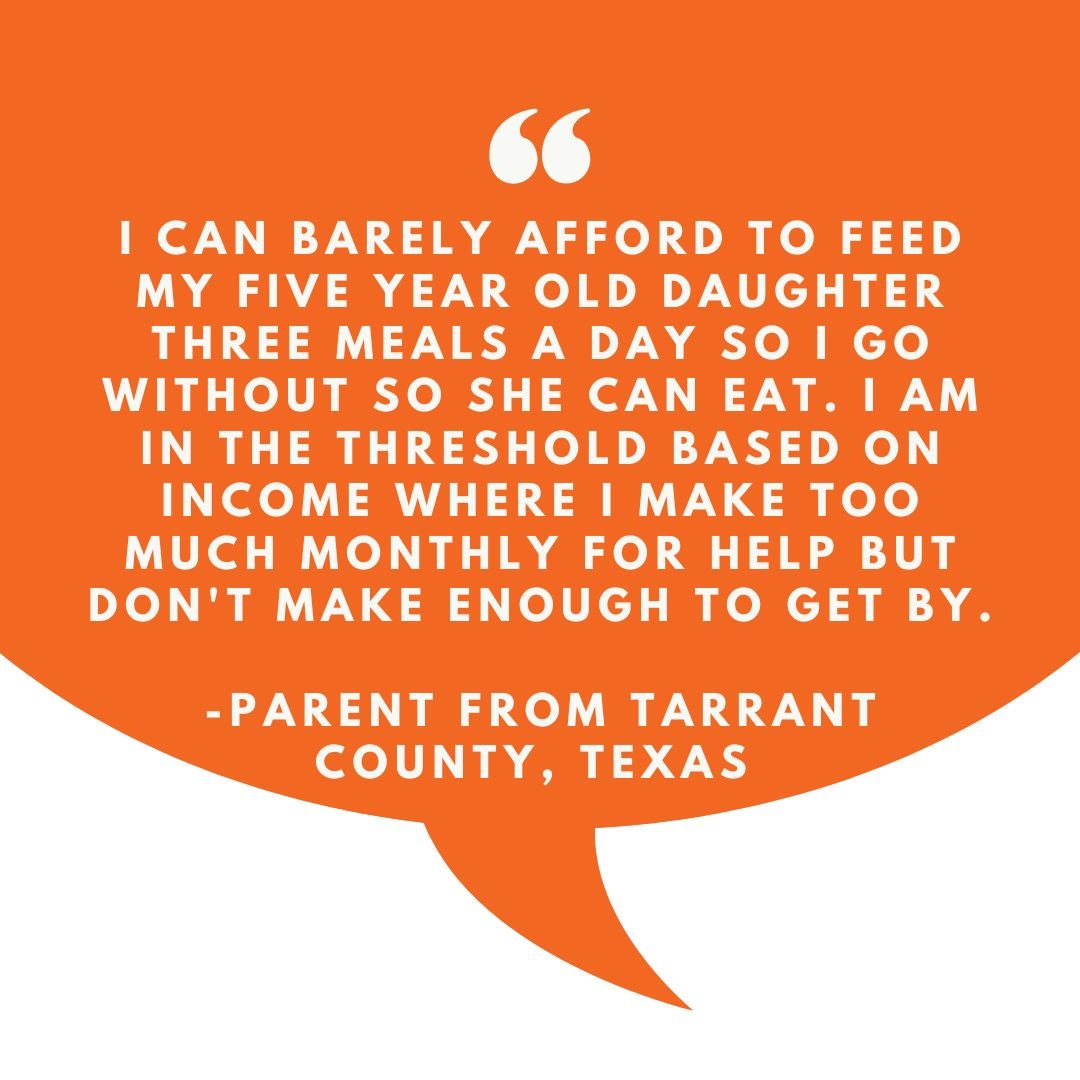 At No Kid Hungry Texas, we know that school meals play a vital role in ensuring that kids are nourished and ready to learn. In fact, No Kid Hungry has conducted research that shows access to school meals not only decreases chronic absenteeism, but it can also increase test scores and help keep kids healthy! However, school meals do much more than keep kids nourished and strong, it can also help families stretch their monthly food budgets.
At No Kid Hungry Texas, we know that school meals play a vital role in ensuring that kids are nourished and ready to learn. In fact, No Kid Hungry has conducted research that shows access to school meals not only decreases chronic absenteeism, but it can also increase test scores and help keep kids healthy! However, school meals do much more than keep kids nourished and strong, it can also help families stretch their monthly food budgets.
The data is clear, 1 in 5 Texas kids experience food insecurity, but with the ending of federal COVID era flexibilities that allowed school meals to be free for all, record high inflation, and skyrocketing cost of living in Texas communities, more families are facing hunger.
In January 2023, No Kid Hungry Texas commissioned Change Research to conduct a state-wide survey on the state of food insecurity in Texas, which was answered by more than 1,000 Texans across the state. We learned that:
- It’s getting harder for families to afford groceries. Nearly three-quarters (73%) of Texas adults are having a harder time affording groceries now compared to early January 2022. The rising costs of other essentials (e.g. utilities, clothing, rent, gas, etc) are the most frequently cited reasons that have made it harder to put food on the table.
- Parents of school-aged children and rural Texans have been hit the hardest. Two in five (40%) parents and 44% of rural respondents experienced one or more indicators of food insecurity in the past year and a quarter (26% of parents, and 25% of rural Texans) worried that their household would not have enough to eat.
- Even working and middle-class families are impacted by this hunger. One in three respondents (33%) with annual household incomes between $50,000 and $100,000 reported one or more symptoms of food insecurity, like skipping a meal or being unable to eat nutritious food, among others.
- Texans want action to address hunger. The overwhelming majority (90%) of Texans agree that ending childhood hunger should be a top priority for the state’s elected officials, and 95% say that addressing childhood hunger should be a bipartisan issue.
A Call to Action
As we enter Texas’s 88th Legislative session, No Kid Hungry Texas is taking action by asking the legislature to appropriate funding that would cover the cost of reduced priced meals allowing them to be provided at no-cost to every student who needs it. The Texas Department of Agriculture (TDA) administers the state’s school lunch and school breakfast program which serves approximately three million kids every school year.
Under federal rules, students with a family income between 130% and 185% of the federal poverty level are eligible for meals at a reduced price of up to $0.40 for breakfast and lunch. While reduced-priced meals seem modest in cost, they remain a barrier for many working families, as many Texans are just one emergency away from facing poverty in any given month. Eliminating this added expense could go a long way to helping cover additional grocery costs for families and help relieve schools of the administrative burden of categorizing students into three different meal categories.
We hope you will support this effort this legislative session and follow along as we make progress. For more information on how you can take action, click here.

NKH TX Staff at Texas Capitol



